Achieve more by reducing your priorities rather than adding to your pressures.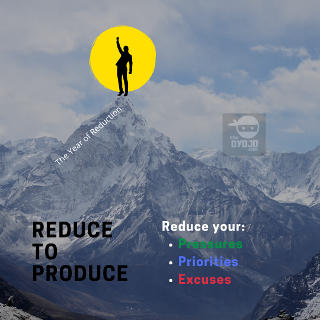 Whether it’s the beginning of the year or any date thereafter, the demands of life weigh heavy on those who maintain a hunger for personal and professional growth. Life often feels like a mountain we are ill equipped to summit. The path of the status quo leads to lofty goals set at the dawn of the new year, most of which quickly fade into the necropolis of to-do lists gone un-done. Though it seems counter intuitive, if you want to carry your goals over the peak, you should start by reducing the weight of your load. Prioritization helps you to embrace your identity and live your purpose. Reducing your load starts with weeding through the internal and external pressures to focus on what is important to you. When you harness this simple truth you realize it is better to have a few things that are completely done rather than several items that are only partially done. Going over the mountain starts with preparation and then taking those first steps up the mountain. Reduce in order to produce. “It is not a daily increase, but a daily decrease. Reduce your Pressures.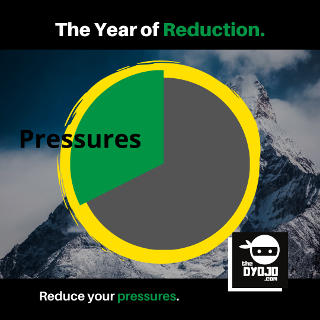 You should be intentional about giving yourself some credit from time to time. Remember, you have a purpose, a job, family, commitments, side hustles, hobbies and you need time to sleep. Take a moment to appreciate what you have accomplished and where you have traveled in your journey. It’s ok to give yourself a compliment. As you climb towards your goals, build into your development process time for reflection and gratitude. Bill Carmody, founder and CEO of Trepoint, encourages growth minded professionals, “So much of what we do in our business is driven (or limited) by our psychology. Celebrating your wins not only feels great physically, but it reinforces the behavior you want to show up when you face a new challenge or opportunity.” "Consider what you might accomplish if you stopped Reinforce positive behavior as you face challenges. This is enhanced by surrounding yourself with positive influences. This should not be confused for surrounding yourself with people who will tell you what you want to hear and will allow you to underperform on your potential. There is a fine line between those who will, “Tell you like it is,” but have no functional input to help you evolve and those who will encourage, as well as correct, as they walk alongside you. Resources such as social media can both be distracting from your efforts to reach your goals as well as create a false sense of achievement. Don’t fall prey to the allure of attention (external adulation) and achievement (internal satisfaction). Srinivas Rao challenges us to consider, “What you might accomplish if you stopped confusing attention with accomplishment.” Rather than sharing about what you plan to do in order to receive some fleeting praise, celebrate your victories (large and small) with those who are directly involved in your ascent. Build sustainable habits that will aid you in achieving your goals:
Reduce your Priorities.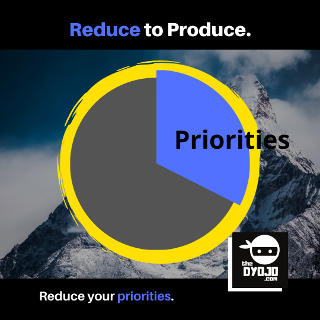 Climbing a mountain requires preparation, dedication and endurance. You have limited time and you have to be realistic with what you can pursue and invest in. Whittle down your priorities to the core things that matter to you. Your priorities will change as you unfold your personal and professional development. If everything is important then nothing is. Be intentional by reducing your list of priorities to items that you can gain momentum and achieve. Focus is the key to harnessing your ability to achieve. If you want to achieve your goals you must transfer your ideas (what is in your head) into habits (action) as this is the most effective way to develop sustained positive changes. Your neural messengers that facilitate goals being transformed into habit are called endocannabinoids. Dr. Ralph Ryback, writing for Psychology Today, states, “The best way to get your endocannabinoids to help you form a habit is by being consistent. Work toward your goal every day, even if you don’t feel like it. You can set aside a specific time each day, or a specific context.” "The mark of a great man is one who knows when to set aside the important Simple steps for crushing your growth goals:
Reduce your Excuses.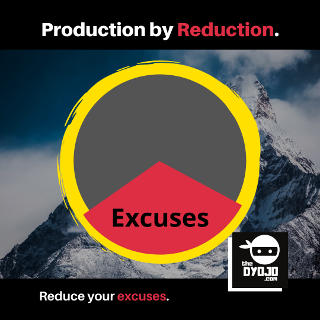 In a letter to his friends in Rome, Paul writes, “I say to everyone among you not to think of himself more highly than he ought to think, but to think with sober judgment.” Often, our minds receive this as though we need to bring ourselves down a notch with an improper understanding of humility. I find it interesting that the author says, “With sober judgement,” which also means an honest evaluation. We shouldn’t think of ourselves more highly than we ought but also we should not think of ourselves more lowly than we ought. Sober judgement means that we have an understanding of our identity and our purpose. You are capable. You can achieve what you want. Do you want to have a better body, you can do it - you will have to be realistic with what that commitment will require. You know the process includes eating better, getting sleep and a commitment to working out. Personal and professional development is not so much about learning new information but applying what we know to be true. Achieving a better body is often tied to looking like some prototype. When you compare yourself to others it isn’t helpful. Your goals should be specific to you and reaching your potential. Development is a process of embracing your identity and living your purpose. If you are in a rut, start yourself with some low hanging fruit that will help you get the wheels turning again. Your success will inspire you to reach further. It’s amazing how when you start saving a little money, the momentum of those feelings of small achievements propel you to save more and grow your vision for what is possible. The same is true in any endeavor of change. Development is a process of embracing your identity and living your purpose. Reduce your excuses to produce better results:
The Year of Reduction.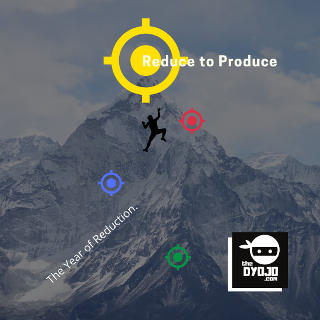 What would happen if you and I declare this The Year of Reduction - Reduce to Produce? So much of what screams at you and me for attention challenges us to do this or that and only adds to the weight we carry. By shedding some of the unnecessary weight you can focus on what matters to you and make progress in your process. Embrace your identity, be who you are. Live your purpose, be all that you were designed to be. What will you do today to reduce your pressures, reduce your priorities and reduce your excuses so that you can climb your mountain with less resistance? Resolve within yourself to Reduce so that you can Produce.
0 Comments
As you prepare to battle for your dreams, let Bruce Lee’s principles kick your goals into gear. The importance of prioritization The importance of prioritization Bruce Lee rose to icon status in the 1960’s for ushering in a new generation of interest to the martial arts. He is viewed as a person of laser focus who made “karate” cool through his movies. Behind his public persona was a quest to develop a martial arts system that elevated beyond the status quo of stale practices that did not reflect real world combat. Lee worked tirelessly to develop his brand of martial arts which he called Jeet Kun Do. You can imagine that someone like Bruce, who wanted to make the world better through his fighting system, had to prioritize his efforts. Balancing his Hollywood big screen projects such as Enter the Dragon, small screen appearances including the television show The Green Hornet, developing his system of fighting, instructing students and writing, among other things. His efforts made a lasting impact with regards to bridging the gaps and perceptions that separated the East from the West at that time. “The successful warrior is the average man, with laser-like focus.” - Bruce Lee Writing for Time magazine, Joel Stein noted, “With nothing but his hands, feet and a lot of attitude, he turned the little guy into a tough guy.” We know Bruce Lee for what he became, but in 1959 he was an 18 year old Asian kid who traveled from Hong Kong to the United States. Lee was not a likely fit for a future pop culture icon but his drive led him into the limelight. Bruce took the world by storm and his fame was only shortened only by his untimely death at the age of 32. Stein elaborates on the impact that Mr. Lee made in a broader social context, “He was the redeemer, not only for the Chinese but for all the geeks and dorks and pimpled teenage masses that washed up at the theaters to see his action movies. He was David, with spin-kicks and flying leaps more captivating than any slingshot.” Bruce approached martial arts with the thoughtfulness of a philosopher. He was intentional in his actions and his intensity brought a brilliance to everything that he did. Lee expressed several key ideas that are helpful to personal and professional development. Our ability to reach our goals has a lot to do with how well we prioritize our efforts. Rabid Practicality “Knowing is not enough, we must apply. Willing is not enough, we must do.” - Bruce Lee Lee wanted Jeet Kun Do to incorporate, “Practicality, flexibility, speed, and efficiency.” Personal development is a paradox. To achieve we must be practical as well as rabidly ambitious. This is best expressed as being led by vision. You should have Big Hairy Audacious Goals (BHAG) but to achieve you must break those down into 10 year, 3 year, 1 year, quarterly, monthly and daily goals. Build your confidence by breaking your dreams into goals and get to work. Veracious Hunger “Absorb what is useful, discard what is useless and add what is specifically your own.” - Bruce Lee Bruce was well-read and had an extensive library dominated by martial arts subjects and philosophical texts. Your professional development must be applicable to your vision, this does not mean that you can only study what others in your industry produce. Lee learned from disciplines as broad as fencing and boxing to develop his art. Learn to discern between what is helpful and what is not. Keep making progress in your process. Aggressive Reduction “It is not a daily increase, but a daily decrease. Hack away at the inessentials.” - Bruce Lee How often do you have multiple tabs open or too much clutter in your work space? When we realize it is better to have a few things that are completely done than several things that are only partially done, we start to win the battle of prioritization. Author Stephen Covey frames it this way, The key is not to prioritize what's on your schedule, but to schedule your priorities.” Start your day with a plan and work your plan rather than just winging it. Live your life with intentionality. Unrelenting Belief “Life’s battles don’t always go to the stronger or faster man. But sooner or later the man who wins, is the man who thinks he can.” - Bruce Lee In her book Unqualified Success, author Rachel Stewart shares personal and practical tips for bridging the gap from where you are today to where you want to be. What is unique about her book is that she walks the reader through portions of her own professional development where she felt unqualified. Rachel came to realize that we all start out unqualified which should be motivating rather than deflating. Cleaning out your thought closet and taking ownership of your thoughts are keys to unlocking your potential. Your dreams should fear you Whether your goal is to build something new as an entrepreneur or to improve your organization’s performance as a manager, start by leading yourself. Time is limited so make sure you are using it effectively. Open a can of intentionality by prioritizing your efforts and resources towards making progress on your goals. There are no short-cuts or secret sauce. Every dreamer can be an achiever. Open a can of motivation by remembering this encouragement from Bruce Lee, “The successful warrior is the average man, with laser-like focus.” Additional Resources:
New year = new you? Get the spin on your fitness goals with the 2018 flab pack. Spin your way to success in life, business, family, faith and fitness. Music Wordsplayed - Against All Adz Additional articles on health related topics:
It’s the end of the year. We feel the pressure to make our resolutions. What should we consider when drafting plans to grow ourselves and our business in the coming year? Math may or may not be your strong suit, but planning and success are measurable points upon an X and Y axis. 1. I didn’t have a plan and I didn’t reach my goals I didn’t have a plan. I was not able to achieve my goals. This may or may not be the result of not having a plan. For the coming year we would have nothing to lose by drafting and implementing a plan. The bar was set low last year and we knocked it over. This year it’s time to give setting the bar a chance, unless we want to continue in mediocrity. Did you have a plan but you just don’t want to admit that you failed? There is something to stating your goals aloud or at least in writing. If you want to increase your achievement potential you may find some value in our video on personal organization. 2. I didn’t have a plan and I reached my goals I didn’t have a plan. I was able to achieve my goals. As noted before, perhaps you did have a plan but you didn’t want to state it for the record just in case you didn’t reach your marks. Many are afraid of failure, but it is also common to be afraid of success. Don’t allow yourself to fail in planning simply because you are afraid to fail. If you are experiencing fear of failure you may find some value in our fear mantra. You can take a gamble on not having a plan and being able to reach your goals in the coming year. Or you can take the momentum you had from last year and improve that through composing and declaring your plans for the coming year. 3. I had a plan and I didn’t reach my goals I had a plan. I was not able to achieve my goals. This may or may not have been the result of having a plan. Was the issue with the plan, the execution or a failure to adapt? Having a plan does not mean that we can guarantee our results. We like to practice rigid flexibility. We want to have a plan but we must be able to adapt as we receive new information or experience obstacles. If you crave success you will need to prepare to succeed. If you want to take yourself to the next level in your personal and professional development, it’s time to make a plan for how you are going to use the hours that you have — make a plan for what you will do with the hours everyone else is wasting. 4. I had a plan and I reached my goals I had a plan. I was able to achieve my goals. Take a little victory dance. You did it. You were intentional about your approach to last year. You were able to execute your plan, adapt in the face of obstacles and persevere to the end of the year. Now that you have tasted success, can you repeat it? It is likely that the same exact plan executed in the same exact way will not bring the same result. The only constant is that things are constantly changing. The good news is that you now have a habit for success and you have tasted the glory of it. This should provide you with a template as well as the motivation to repeat your efforts from last year and carry them into the new one. Whether you planned and/or succeeded, this is a new year and a fresh new opportunity to chase life, liberty and the pursuit of happiness. In drafting your plan, consider the following: 1. Is your vision clear for the coming year? 2. Are your goals rooted in your mission? 3. Are there habits that need to be eliminated? 4. Are there parts of your system that can be simplified? 5. Do you need to adjust your structure? When we invest in creating an end of year plan, we help to clarify and solidify our vision. If vision is tied to reality than it should filter through our personal and organizational disciplines. Vision fuels our habits. Vision combined with goals will clarify our mission. Whether we want to grow or not, growth is essential. Whether we think we need change or not, adaptation is the root of survival. Failure is not final and neither is success. Whether last year was one of achievement or disappointment this is a fresh new year and we can change things or build on our momentum through the simple act of planning. Prepare yourself to succeed. Success tomorrow starts with making a plan today. IZ Ventures - business coaching & consulting. We don’t just consult - we help you Connect, Collaborate & Conquer. |
AuthorThoughts on personal and professional development. Jon Isaacson, The Intentional Restorer, is a contractor, author, and host of The DYOJO Podcast. The goal of The DYOJO is to help growth-minded restoration professionals shorten their DANG learning curve for personal and professional development. You can watch The DYOJO Podcast on YouTube on Thursdays or listen on your favorite podcast platform.
Archives
March 2023
Categories
All
<script type="text/javascript" src="//downloads.mailchimp.com/js/signup-forms/popup/unique-methods/embed.js" data-dojo-config="usePlainJson: true, isDebug: false"></script><script type="text/javascript">window.dojoRequire(["mojo/signup-forms/Loader"], function(L) { L.start({"baseUrl":"mc.us5.list-manage.com","uuid":"b9016446bd3c6a9f0bd835d4e","lid":"83282ffb9e","uniqueMethods":true}) })</script>
|
Jon Isaacson |
Connect. Collaborate. Conquer.
© COPYRIGHT 2015. ALL RIGHTS RESERVED.
|

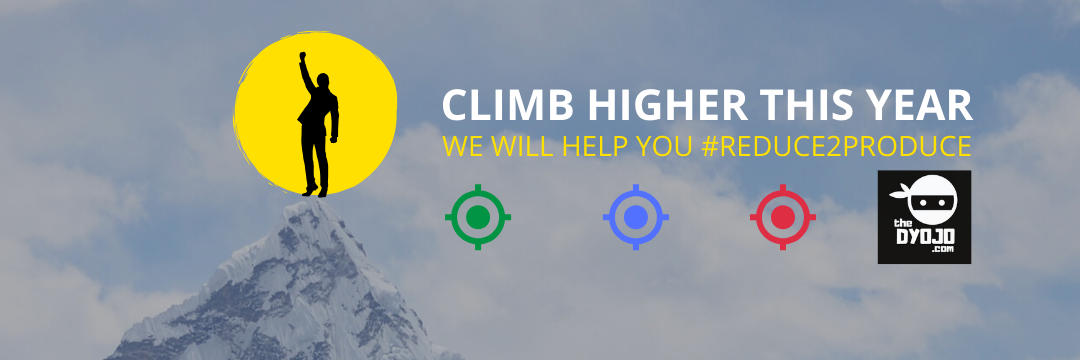



 RSS Feed
RSS Feed